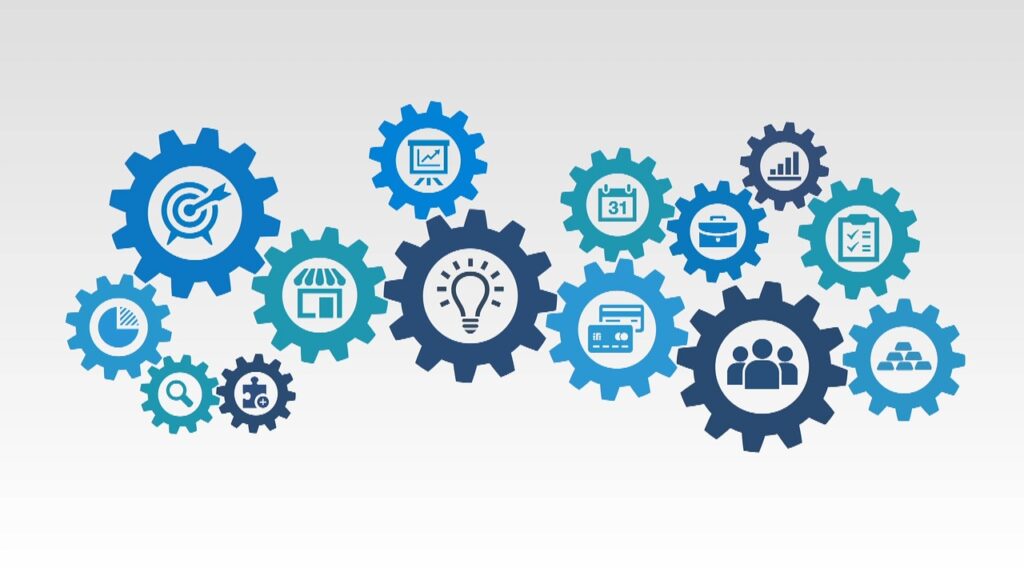Energy efficiency is a huge factor when it comes to successful business operations. Not only can going green help you save money, but being mindful about how much energy your business uses helps reduce its impact on the environment. With a few simple changes, you can drastically reduce your company’s energy consumption and positively impact the world.

1. Keep up with Regulations and Standards
Staying current on all of the relevant energy efficiency regulations, standards, and best practices can help your business stay compliant and ensure you’re getting the most out of your energy use. Knowing what requirements apply to you allows you to take advantage of any incentives and rebates that may be available. Keeping up with the latest energy efficiency news can help you stay on top of new technology and research developments.
2. Utilize Energy Audits
When managing a business, every detail matters – big or small. In terms of electricity and other costs related to energy use, there’s plenty of room for improvement. That’s where an energy audit comes in. Not only can an auditor show you what areas are using too much energy, but they can also identify cost savings opportunities. Through one of these audits, you will gain valuable insights about managing your energy usage better and improving efficiency, leading to reduced emissions and cost savings that can be reinvested in improving your business even further.
3. Use Renewable Energy
Investing in renewable energy sources can be beneficial for businesses looking to reduce their reliance on conventional energy sources and their environmental impacts. Solar and wind power offer a reliable, sustainable, and safe alternative to conventional energy sources.
These renewable energy sources provide many benefits – from reducing carbon dioxide emissions and water usage to providing healthy living conditions – and many states also offer incentives for businesses that invest in them. Doing your due diligence when it comes to research can help you determine whether investing in renewable energy is the right course of action for your business and determine what kind of incentives are available for your particular location.
4. Monitor and Track Consumption
Establishing energy consumption goals for your business is the first step to energy efficiency. One way to ensure you meet these energy goals and benefit from energy-saving measures is to monitor energy consumption over time.
With energy monitoring softwares, businesses large and small can track their energy use, identify areas of usage that need improvement and ensure that energy savings are achieved through any energy-saving measures they have implemented. This helps business owners make informed energy decisions with hard facts at their disposal, helping them stay ahead of energy costs while protecting the environment.
5. Educate Your Employees
Energy efficiency is one of the most important things to remember in a business since it can help optimize costs, reduce emissions, and save resources for future generations. Considering that employees may have other priorities, it is critical to properly educate them about the importance of energy efficiency and how their habits can contribute to the business’s success.
Doing something as simple as ensuring all lights are turned off when leaving a room or shutting down devices before going home at night can add to great savings if implemented across all departments. Doing so will ensure everyone remains conscious about their own personal energy usage and create a positive impact on the company’s finances and environmental footprint.
6. Invest in Energy-Efficient Equipment
Investing in energy-efficient equipment can be an intimidating endeavor. It typically costs more upfront than traditional models, however, the long-term savings in using less energy makes it an attractive option. Before making any major purchases, thoroughly research to ensure you get the best value for your money.
Many products are now built with innovative technologies that decrease power consumption and offer various customization options. Make sure you know all the available features and consider how those capabilities could benefit your business or daily lifestyle when deciding.
7. Set Goals and Track Progress
Setting and tracking energy efficiency goals are important for businesses that want to stay ahead of the competition while also doing their part in protecting the environment. Reviewing progress over time allows you to focus on areas where improvement is necessary and determine which strategies have been effective.
Goals must be clear, measurable, and achievable, so you know when they have been met and can move on to more ambitious targets. This will allow your business to stay on track toward its objectives while reducing energy consumption and benefiting the planet.
Conclusion
Following these tips can help your business make meaningful progress toward becoming more energy efficient and help you identify potential cost savings opportunities. Taking the time to plan, implement, and track your initiatives properly can have a lasting impact on both the environment and your bottom line.
To read more on topics like this, check out the Business category








